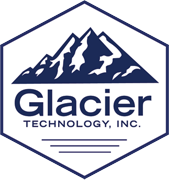The Cost of Reheating Air
 The smoke and fumes that occur in industrial work environments must be removed, no matter what the season. In the summer, when shop fumes build up, garage doors can be opened and exhaust fans activated to create a flow of fresh air. Unfortunately, this open-door ventilation solution becomes quite expensive in the winter, since the typical average air temperature for an Upper Midwest winter is around 28°F. Since keeping the garage doors open during winter months is not an option due to comfort and expense, conditioned air must be added to the work environment to replace the air being blown outside.
The smoke and fumes that occur in industrial work environments must be removed, no matter what the season. In the summer, when shop fumes build up, garage doors can be opened and exhaust fans activated to create a flow of fresh air. Unfortunately, this open-door ventilation solution becomes quite expensive in the winter, since the typical average air temperature for an Upper Midwest winter is around 28°F. Since keeping the garage doors open during winter months is not an option due to comfort and expense, conditioned air must be added to the work environment to replace the air being blown outside.
For example, a small welding shop located in the Minneapolis metro area may have:
- Six welders working per shift
- A working area that is 100 ft x 50 ft wide, with a ceiling height I of 15 ft
- Garage doors for shipping and deliveries are located along one side of the shop
- Two 5,000 CFM 20” wall propeller fans to exhaust the welding fumes
Using the ASHRAE formula for degree heating days, we find the following:
Over the course of a typical Minneapolis winter, if a factory operates 8 hours a day, 5 days a week, heating makeup air costs around $0.30 per CFM. If the factory operates 24 hours a day, 7 days a week, heating makeup air will cost around $1.25 per CFM. This means the small welding in this example will spend anywhere from $3,000 to $12,500 on continuously reheating make up air.
A Cost-Efficient Alternative
If air can be returned to the work area once it is cleaned and filtered, no make-up air will be needed. This can mean savings of up to $1.25 per CFM per year. For this reason, most filtration systems will see a return on investment within 2 to 3 years. Savings after that point can be considered money in the bank.
Glacier Technology assists customers, not only in developing effective filtration solutions, but provides customers with assistance in securing rebates from local utility companies based on energy savings realized from filtration systems. These rebates can substantial and dramatically reduce the initial cost of investment on an air filtration system. Contact us to learn more!
